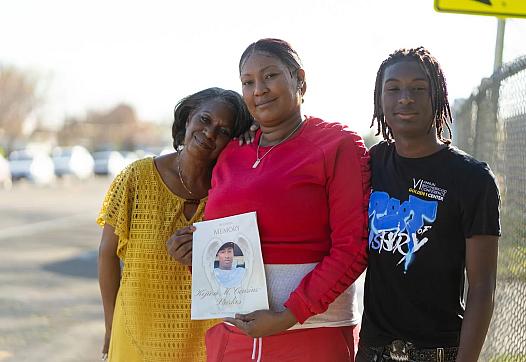Q&A: Sac Activists Share Stories Of Battling Gun Violence
The story was originally published in The Observer with support from our 2024 California Health Equity Impact Fund.
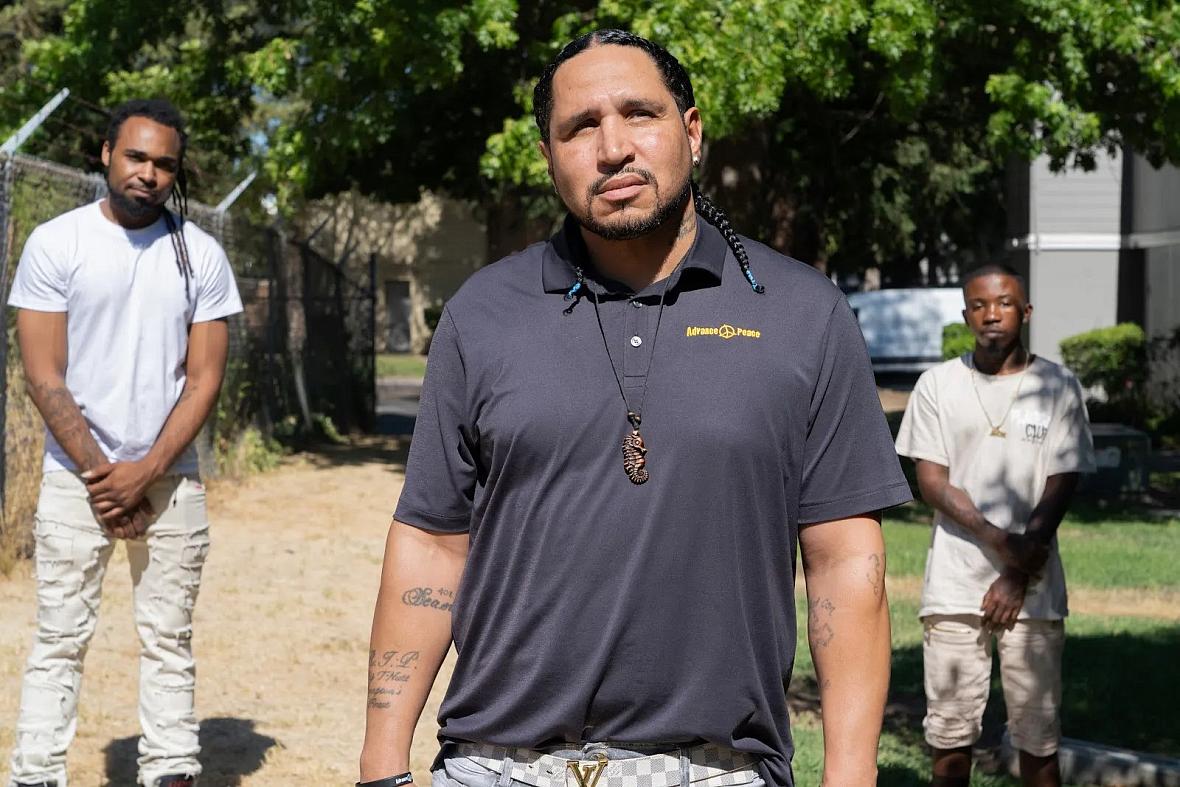
Freddie Dearborn of Advance Peace, center, helps to interrupt gun violence by mentoring young men like John Huston, left, and Ricky Survine, right.
Roberta Alvarado, OBSERVER
Gun violence, a public health epidemic that affects the well-being and public safety of all Americans, accounted for more than 43,000 deaths in 2023. Between 2010 and 2020, gun-related deaths rose by roughly 43%, according to the National Institute for Health Care Management.
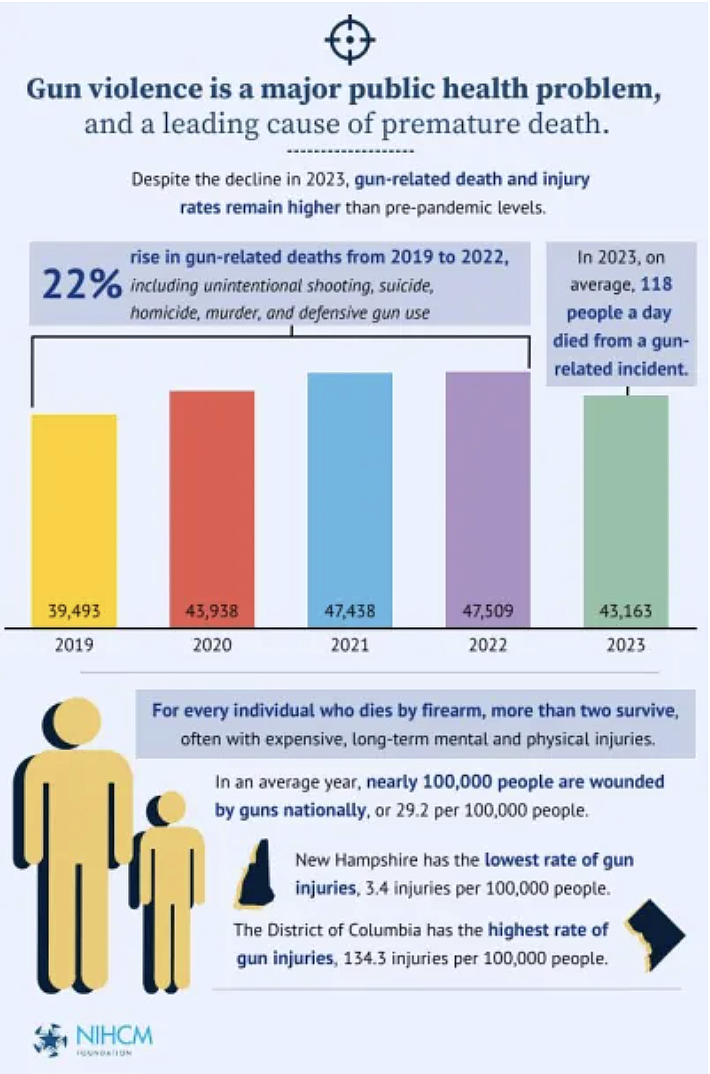
Hit hardest by gun violence are Black communities. Despite accounting for only 14% of the U.S. population, Black people account for 60% of those killed by firearms each year, according to the Centers for Disease Control.
Sacramento County’s gun violence statistics mirror the nation’s.
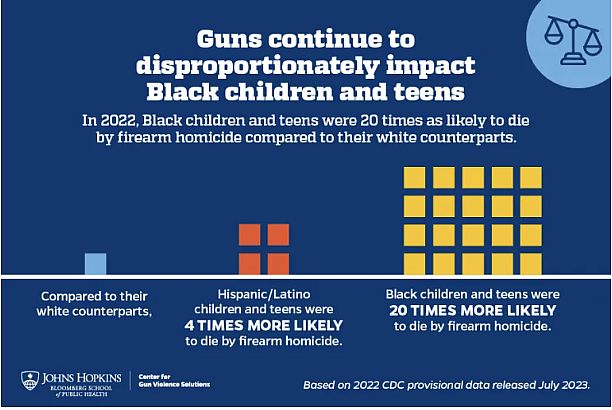
While Black people make up roughly 12.6% of the county’s population, they accounted for about 52% of gun-related deaths from 2019 to 2023, according to an OBSERVER analysis of coroner data.
Between 2018 and 2023 in Sacramento County, 62 victims aged 19 or younger were killed by gunfire, according to an OBSERVER analysis of coroner’s office data. Thirty-four of those victims, or 55%, were Black people, who make up about 11% of the county population.
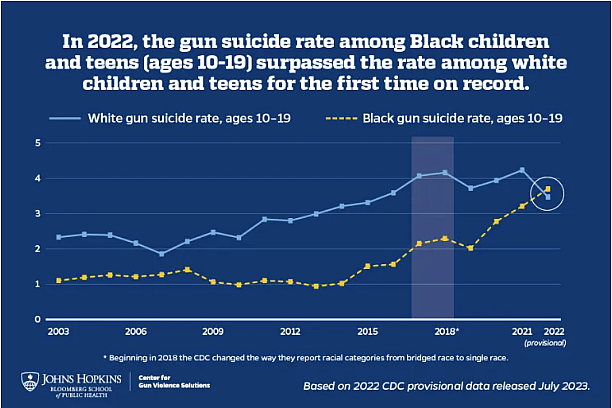
The OBSERVER sat down with two local advocates who have worked to reduce gun violence in Sacramento and around the country for years.
Berry Accius, founder of Voice of the Youth, saw a friend shot and killed in front of him in Oakland when he was a teenager and has been an advocate fighting against gun violence in Sacramento for about sixteen years.
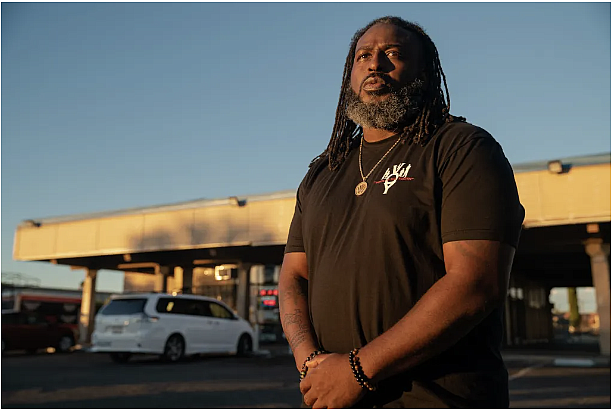
Local activist Berry Accius, founder of Voice of the Youth, has worked to reduce gun violence in Sacramento — particularly among young Black men — for years.
Louis Bryant III, OBSERVER
Freddie Dearborn, 47, with Advance Peace, has been shot and went to prison for gun-related charges, but now works directly with those most at risk for committing gun violence by “interrupting” violent situations.
They told The OBSERVER which Black people are most often victims of gun violence, why guns are now more available to young people, and what can be done about it. This Q&A has been edited for conciseness.
Q: Why are so many Black people victims of gun violence?
Accius: You have poverty that continues to be the root of many of the situations. Poverty creates violence and, unfortunately, it creates gun violence. Our education system has failed a lot of our young people when they’re already preparing our youth after they’re not successful in third grade for prison. So the justice system plays a double-edged sword. In one way they are saying they want to change things, but in another way they have tried to attempt to arrest our way out of things.
Q: Why are the people dying and doing the shooting getting younger?
Accius: From 2020 to 2024, there was an uptick of guns in our community during COVID-19. Kids were able to just be crazy on the streets and were going wild, breaking into cars, breaking into stores, and subsequently doing smash-and-grabs. They were more able to buy guns and build guns. This never was our life; we had to figure out ways to get a gun. You couldn’t just go online, put in a credit card [number], get a gun sent to you from Amazon, and then build it right in your home.
Dearborn: Elected officials tell us there are resources, but on the ground and in the trenches, the resources just aren’t there. Rappers meanwhile are glorifying guns and shooting people in the music. If you make a positive song, it won’t get any play at all – it’ll be a good song and everything, but it’s not going to get any play on YouTube, and definitely not going to get played on the radio. But if you make a song about killing somebody or slapping a lady they are going to number one.
That’s what these youngsters thrive off of. So that, right there to me, says a lot of why the gun violence is steadily going out the roof and the numbers are going higher.
Q: What influences young people to have guns and “live that life?”
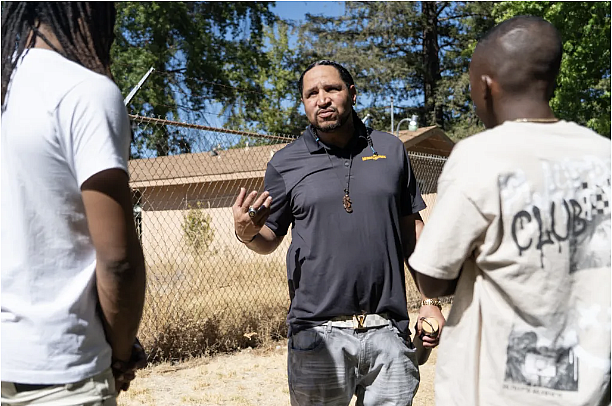
Freddie Dearborn of Advance Peace, center, mentors young men like John Huston, left, and Ricky Survine, right. Dearborn has been shot and went to prison for gun-related charges, but now works directly with those most at risk for committing gun violence by “interrupting” violent situations.
Roberta Alvarado, OBSERVER
Accius: People think that all of the gun violence and all of the gun abusers are coming from these rural, ghetto, disenfranchised, underserved communities. But a lot of our kids who come from great family backgrounds, who come from sports, who come from decent schools, who come from parents that are giving them opportunity are looking for “that life” too. You have a lot more of the kids in suburban areas who are more likely to be a part of this kind of lifestyle. There was anti-violence music but now the music culturally overall is pro-guns, it’s pro-drugs, it’s pro-destruction of our own community.
When a 10-year-old has access to a gun and then uses that gun, there is nothing here in the great state of California to help rehabilitate this child who shot and killed another 10-year-old. That becomes a problem within the system, a problem within parenting.
Q: What is gun violence intervention and what does it look like?
Dearborn: The intervention specialists are now focusing on those shooters, those that are raising the crime rate. We’re now giving opportunities and options to those who could be the shooters – we’re getting them before they even get involved in that life. For example, this dude needed school clothes for his kids. He had to go rob somebody, then they came and shot him in front of everybody right in his head. So now he’s dead. If we had the resources, he’d still be alive.
Another piece of interruption is transformative travel. I’ve watched kids’ whole world change by taking them out of their comfort zone. And we’re not talking about a trip down to the city. We’re talking about a whole different state or out of the country. You have to be able to give these kids alternatives and examples of how life can be instead of what they see on a regular basis. I travel across the country and I train mentors on how to engage with the youth and the proper procedures to get in the trenches and build rapport with these shooters, we strictly deal with shootings and gun violence.
When one of these youngsters is buried [from being shot], their friends need the mentorship to not go out there and cause more harm. I become their friends on social media immediately. I need to watch them, watch what they’re doing because they’re making posts and doing not-so-good things, right? So I’ll be like, “Take that down.”
Q: Tell us a time when you stopped gun violence.
Dearborn: A youngster from one hood dissed a dead youngsta from a rival gang on social media. I made contact with both parties and brokered peace. Another time during a dice game, a gun was pulled out but no action was taken. My presence itself calmed all of that down. Everyone made it home safe that night.
Now, this other time, a youngster wanted to go shoot a house up. I’m right there when he’s gearing up. I said, “Where are you going? What are you doing?” I told him to put that down. He’s like, “No, I’m going to shoot up the house.” I told him… “We don’t do that. We’re not shooting up the house with innocent people in there.” He put his gun down and said, “I’ll give it to you, I wouldn’t listen to anybody else but you.”
Q: What were your experiences with gun violence?
Dearborn: I was a full-fledged gangbanger and ended up in prison for gun cases and gun violence throughout my life. The last time I ended up in prison was in 2012 for a shooting out here in Sacramento. That was my last case. I came home in 2016 with two strikes. I committed to put it all behind me and raise my family, my children, and then, you know, I had to start fixing some of these problems that I created out here in Sacramento.
I had my partner die in my hands when I was 17 years old. He got shot, right? … He’s looking at me and my eyes and then I started feeling all this warm blood on the side of me.
Accius: The first time I was engaged in a situation that turned into a homicide was when I was 16 years old. We all went down to the Alameda County Fair and we had some friends living in Oakland and we had gotten into it with some guys the day before, but it was nothing. We jumped out of the car and started talking to these girls when a car pulled up. About a couple minutes go by and all I see and I remember is like three dudes come around the corner and they start shooting. … I get up and I’m not hit. My boy’s driving. And then I’m like, “Hey, we’re good, we’re good.” All I hear is in the front seat: “Uhhh I’m shot.” Now we’re racing in the middle of Oakland trying to get this guy to a hospital and he passed away at 17 years old.
Q: What can be done to reduce gun violence?
Dearborn: Our community must open its eyes to how we’re voluntarily committing genocide and be accountable for our actions, behaviors, and how we process things. If not, we’re going to continue to see this type of gun violence. And too many of us believe that we’re playing video games like put another quarter in, but that’s not the way it works.
Accius: Preventing gun violence is taking away the guns from these young people and giving them other opportunities instead of feeling like they have to harm someone. We definitely know remedies to fix the problem, but we constantly are getting Band-Aids to put on the cancer that’s running wild.
We’re saying if we don’t do what we have to do right now, preventing it, our city is going to look exactly like we’re seeing all these other cities and that’s the scariest part about all of this. We are no different from any other city coming up. We just have to make sure we’re on the prevention side more than we’re on the intervention side.


